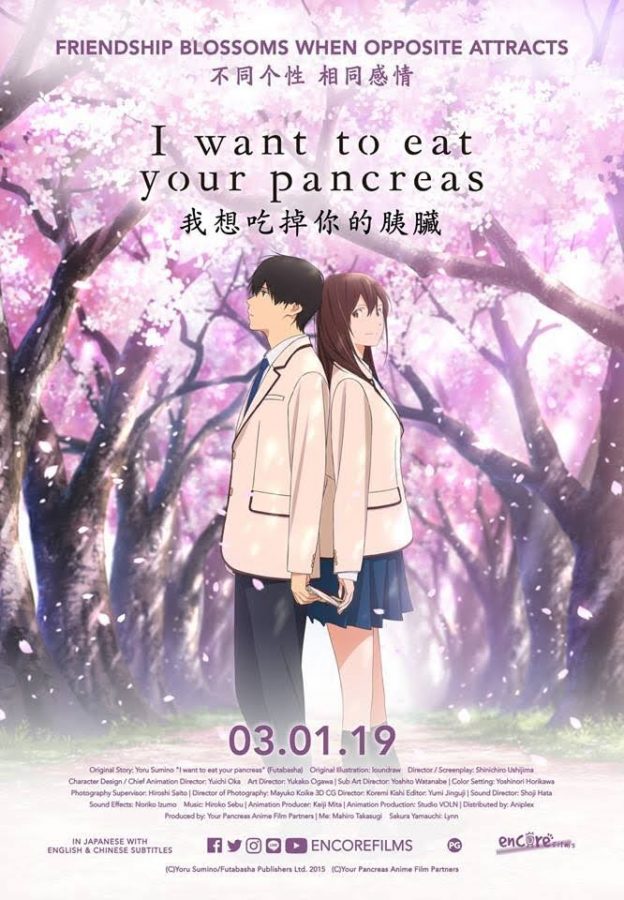Review: I Want to Eat Your Pancreas
April 9, 2021
Set in Japan, I Want to Eat your Pancreas or Let Me Eat Your Pancreas is the moving story of a terminally ill girl that changes the life of her shy and reserved classmate.
Despite initially being unknown to each other, Haruki Shiga and Sakura Yamamuchi form a bond special to the unique circumstance of their new friendship when Haruki accidentally learns of Sakura’s illness after happening upon her lost journal.
Sakura’s journal, which she calls “Living with Dying” is her account of the rest of her life, as well as the bucket list she wishes to complete in her remaining time. Sakura refuses to tell her friends about her illness, reasoning that they would only treat her differently and that she wants nothing to change. In this, she finds Haruki to be the perfect companion.
As they’ve only just met, Haruki is the only one outside of family that knows about Sakura’s illness, yet she still treats her normally. This leads to Sakura enjoying his company, then asking him to cross off her bucket list items with her, the two then slowly forming a stronger friendship over time.
Both of the major characters learn lessons about friendship, honesty, and life together. Sakura is a bright and outgoing person, extroverted and living her life to the fullest. Haruki, however, is introverted and shy, preferring books over human interaction. Throughout their friendship, Haruki buds into a warmer more social individual, while Sakura takes comfort in having a friend to confide in.
Throughout the film both exaggerated warm lighting and upbeat music are often used to lift the spirits of the viewer, presumably to lighten the tone in face of the grim premise. The heart-wrenching knowledge of the inevitable leaves the viewer hoping for a miracle, the developing friendship between our two major characters making it even more difficult.
The voice work in this film is truly stellar. The voice actors bring the talent and emotion necessary to make their roles not only believable, but nearly seamless. The fast pace style keeps the viewer engaged throughout the film, as well as the sound and animation keeping each scene just as interesting as the last.
There is one major downside, however, to this film. The ending, while beautiful in its own way, was in my opinion out of left field. Some viewers may feel cheated when reaching the last moments of this film. Be warned, however, a box of tissues should be kept nearby as this film is a sure tear-jerker regardless of its send off.
In the end, I think I Want to Eat Your Pancreas is a beautiful film with plenty of amazing lessons about friendship and life and a good watch for anyone.
I Want to Eat Your Pancreas was directed by Shin’ichirô Ushijima and adapted from the novel written by Yoru Sumino.




